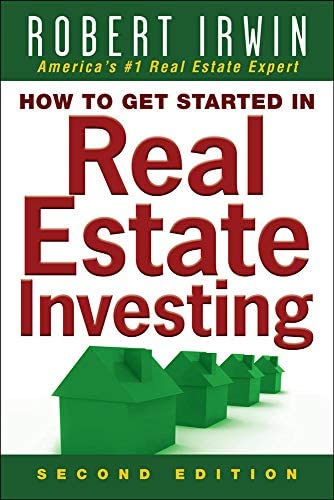
Dual agency can be a bad strategy, no matter if you're a seller or buyer. The truth is, it can make the process more efficient, but it can also create a conflict of interest for both parties. Consider using dual agents if you want to make the process more efficient. However, it can also create conflicts of interest for both parties. It may surprise you to find out that not all states allow dual agents.
The good news about dual agency is that it is legal in many States. For instance, dual agency is legal in New York. Buyers and sellers can both work with the same agent. Both parties must consent in writing to the agent.
Agents who work with dual agencies are often more able to offer their clients superior service. The buyer's agent will have a better understanding of the seller's wants and needs, which can help both parties find a home that will meet their needs. But, a dual agent will not represent the best interests for either party.

Dual agency can be illegal in certain states. This could lead to less smooth transactions. Additionally, dual agents can not offer advice to any side, restricting their ability to represent both of the parties' interests. Each side is better served by their own representation.
The buyer's agent can not advise the seller regarding pricing, counter offers or repair requests. This creates a conflict and the seller's representative isn't always the best person to offer advice. Additionally, a dual agent may not be able to advise the seller on the value of the property.
Dual agency in some states is illegal, like Vermont. Dual agency is legal in other states like California, Colorado and Maryland. This is due to the fact that the seller’s agent is a fiduciary. The agent has a duty and obligation to protect the buyer's interests. A listing agent's job is to make sure that the seller gets the best price.
If you're looking for a real estate agent, it's important to know which states allow this practice. If you're a buyer, you should only choose a broker who specializes in the type of property you're buying. An agent who is skilled in commercial real estate will be an asset if you are looking for an income property. You'll be paying them a lot to do the work you need.

Choosing an agent is one of the most important decisions you'll make. There are agents who specialize on each type of transaction, no matter if you're a seller or buyer. It is possible to streamline the process and save time and money by selecting the right agent.
Dual agency is legal in most states. However, it's not always the best option. Before you sign on to the dotted lines, it's important that you fully consider the risks.
FAQ
What is reverse mortgage?
A reverse mortgage allows you to borrow money from your house without having to sell any of the equity. You can draw money from your home equity, while you live in the property. There are two types to choose from: government-insured or conventional. A conventional reverse mortgage requires that you repay the entire amount borrowed, plus an origination fee. FHA insurance will cover the repayment.
How much money do I need to save before buying a home?
It depends on the length of your stay. Start saving now if your goal is to remain there for at least five more years. However, if you're planning on moving within two years, you don’t need to worry.
Is it possible to quickly sell a house?
If you have plans to move quickly, it might be possible for your house to be sold quickly. However, there are some things you need to keep in mind before doing so. First, you will need to find a buyer. Second, you will need to negotiate a deal. Second, prepare your property for sale. Third, you must advertise your property. Finally, you should accept any offers made to your property.
How do I repair my roof
Roofs can leak because of wear and tear, poor maintenance, or weather problems. Repairs and replacements of minor nature can be made by roofing contractors. Get in touch with us to learn more.
Do I need flood insurance?
Flood Insurance covers flood damage. Flood insurance helps protect your belongings, and your mortgage payments. Learn more about flood insurance here.
How do you calculate your interest rate?
Interest rates change daily based on market conditions. The average interest rate for the past week was 4.39%. To calculate your interest rate, multiply the number of years you will be financing by the interest rate. For example: If you finance $200,000 over 20 year at 5% per annum, your interest rates are 0.05 x 20% 1% which equals ten base points.
How many times may I refinance my home mortgage?
This will depend on whether you are refinancing through another lender or a mortgage broker. Refinances are usually allowed once every five years in both cases.
Statistics
- Private mortgage insurance may be required for conventional loans when the borrower puts less than 20% down.4 FHA loans are mortgage loans issued by private lenders and backed by the federal government. (investopedia.com)
- Some experts hypothesize that rates will hit five percent by the second half of 2018, but there has been no official confirmation one way or the other. (fortunebuilders.com)
- This means that all of your housing-related expenses each month do not exceed 43% of your monthly income. (fortunebuilders.com)
- Based on your credit scores and other financial details, your lender offers you a 3.5% interest rate on loan. (investopedia.com)
- It's possible to get approved for an FHA loan with a credit score as low as 580 and a down payment of 3.5% or a credit score as low as 500 and a 10% down payment.5 Specialty mortgage loans are loans that don't fit into the conventional or FHA loan categories. (investopedia.com)
External Links
How To
How to Manage a Property Rental
While renting your home can make you extra money, there are many things that you should think about before making the decision. These tips will help you manage your rental property and show you the things to consider before renting your home.
This is the place to start if you are thinking about renting out your home.
-
What factors should I first consider? Before you decide if your house should be rented out, you need to examine your finances. You may not be financially able to rent out your house to someone else if you have credit card debts or mortgage payments. It is also important to review your budget. If you don't have enough money for your monthly expenses (rental, utilities, and insurance), it may be worth looking into your options. It might not be worth the effort.
-
How much is it to rent my home? It is possible to charge a higher price for renting your house if you consider many factors. These factors include your location, the size of your home, its condition, and the season. Prices vary depending on where you live so it's important that you don't expect the same rates everywhere. Rightmove reports that the average monthly market price to rent a one-bedroom flat is around PS1,400. This means that your home would be worth around PS2,800 per annum if it was rented out completely. That's not bad, but if you only wanted to let part of your home, you could probably earn significantly less.
-
Is it worth the risk? Doing something new always comes with risks, but if it brings in extra income, why wouldn't you try it? Make sure that you fully understand the terms of any contract before you sign it. It's not enough to be able to spend more time with your loved ones. You'll need to manage maintenance costs, repair and clean up the house. Before signing up, be sure to carefully consider these factors.
-
What are the benefits? You now know the costs of renting out your house and feel confident in its value. Now, think about the benefits. Renting your home is a great way to get out of the grind and enjoy some peace from your day. It is more relaxing than working every hour of the day. And if you plan ahead, you could even turn to rent into a full-time job.
-
How do you find tenants? Once you've decided that you want to rent out, you'll need to advertise your property properly. Make sure to list your property online via websites such as Rightmove. You will need to interview potential tenants once they contact you. This will help you evaluate their suitability as well as ensure that they are financially secure enough to live in your home.
-
How can I make sure that I'm protected? If you are worried about your home being empty, it is important to make sure you have adequate protection against fire, theft, and damage. You will need insurance for your home. This can be done through your landlord directly or with an agent. Your landlord will usually require you to add them as additional insured, which means they'll cover damages caused to your property when you're present. This does not apply if you are living overseas or if your landlord hasn't been registered with UK insurers. In such cases you will need a registration with an international insurance.
-
If you work outside of your home, it might seem like you don't have enough money to spend hours looking for tenants. However, it is important that you advertise your property in the best way possible. Post ads online and create a professional-looking site. It is also necessary to create a complete application form and give references. Some people prefer to do the job themselves. Others prefer to hire agents that can help. Interviews will require you to be prepared for any questions.
-
What should I do after I have found my tenant? You will need to notify your tenant about any changes you make, such as changing moving dates, if you have a lease. You may also negotiate terms such as length of stay and deposit. Remember that even though you will be paid at the end of your tenancy, you still have to pay utilities.
-
How do you collect rent? When it comes time for you to collect your rent, check to see if the tenant has paid. You'll need remind them about their obligations if they have not. You can subtract any outstanding rent payments before sending them a final check. If you're having difficulty getting hold of your tenant you can always call police. They won't normally evict someone unless there's been a breach of contract, but they can issue a warrant if necessary.
-
How can I avoid problems? While renting out your home can be lucrative, it's important to keep yourself safe. You should install smoke alarms and carbon Monoxide detectors. Security cameras are also a good idea. Also, make sure you check with your neighbors to see if they allow you to leave your home unlocked at night. You also need adequate insurance. Do not let strangers in your home, even though they may be moving in next to you.